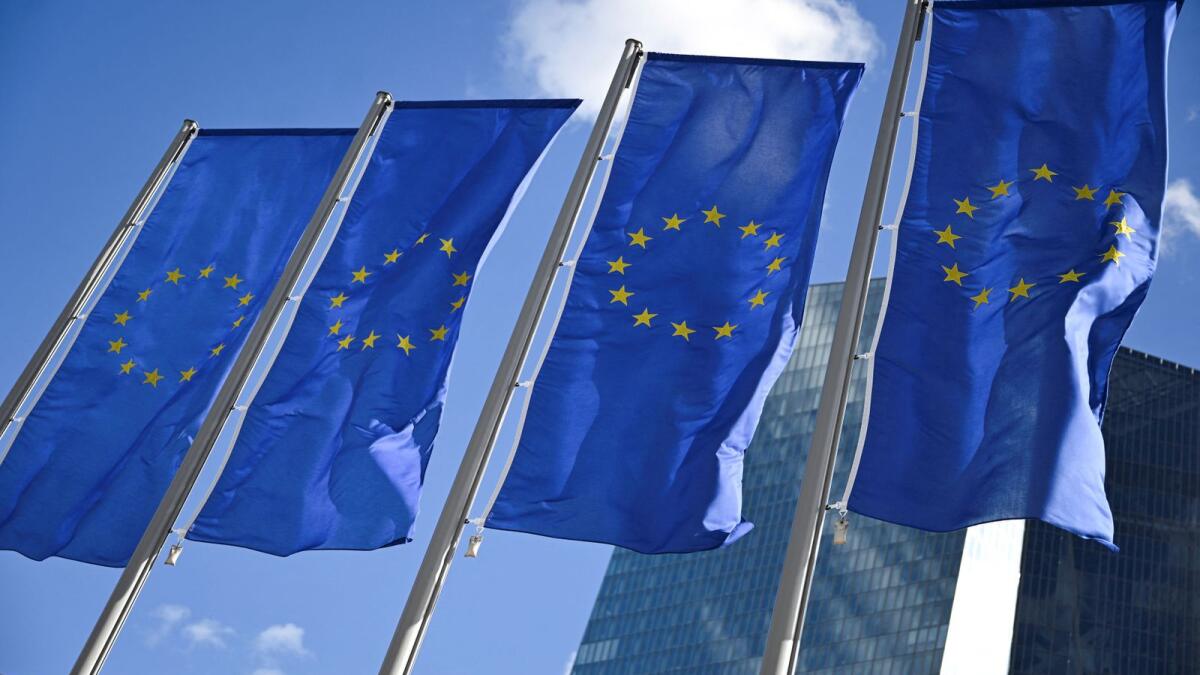The European Union flags are flying high as UniCredit, Italy’s second-largest bank, has taken a 9 per cent stake in Germany’s Commerzbank and is eyeing a potential increase to 29.9 per cent, with the possibility of a full takeover bid in the future. This move requires approval from the European Central Bank (ECB), which serves as the supervisor of the eurozone’s largest banks. The ECB plays a crucial role in overseeing such acquisitions and mergers, ensuring that they comply with regulatory requirements and are in the best interest of the banking sector.
The ECB steps in when a shareholder seeks to acquire 10 per cent or more in a supervised lender, with additional thresholds at 20 per cent, 30 per cent, and 50 per cent. UniCredit will need to present its ultimate goal to the ECB for evaluation, considering factors like the buyer’s reputation, proposed board members, financial health, and the target’s ability to meet regulatory standards. The primary concern is whether UniCredit can afford to purchase Commerzbank while maintaining financial stability and forming a stronger entity.
In light of the current regulatory landscape, it remains unclear whether the ECB would support a merger between UniCredit and Commerzbank. However, the ECB has expressed support for cross-border mergers within the eurozone banking sector to address inefficiencies and improve competitiveness. ECB President Christine Lagarde has endorsed such mergers, emphasizing the need for a more robust banking industry that can support economic growth and development within the eurozone.
Previous mergers in the banking sector provide some insights into the challenges and potential outcomes of such transactions. The ECB’s approval of BBVA’s bid to acquire Sabadell was eventually blocked by Spain’s government, highlighting the political and regulatory hurdles that banks may face in completing cross-border deals. In the case of UniCredit’s bid for Commerzbank, political implications are significant as it involves Germany ceding control of one of its largest banks.
The approval process for such transactions involves the ECB’s supervisory board, consisting of representatives from all eurozone countries, and the Governing Council, which reviews the proposal in a non-objection procedure. The ECB has 60 days to approve a request, which could be extended by an additional 30 days. The decision-making process is thorough and requires careful consideration to ensure that any proposed merger meets regulatory requirements and aligns with the ECB’s objectives for the banking sector.
In conclusion, UniCredit’s bid for Commerzbank represents a significant move in the European banking sector, with potential implications for the broader eurozone economy. The ECB’s role in overseeing such transactions is vital in ensuring financial stability, regulatory compliance, and promoting competitiveness within the banking industry. The outcome of this bid will depend on various factors, including regulatory approval, political considerations, and the overall strategic vision for the banking sector in Europe. As the process unfolds, all eyes will be on the ECB and its decision-making process regarding UniCredit’s potential takeover of Commerzbank.











